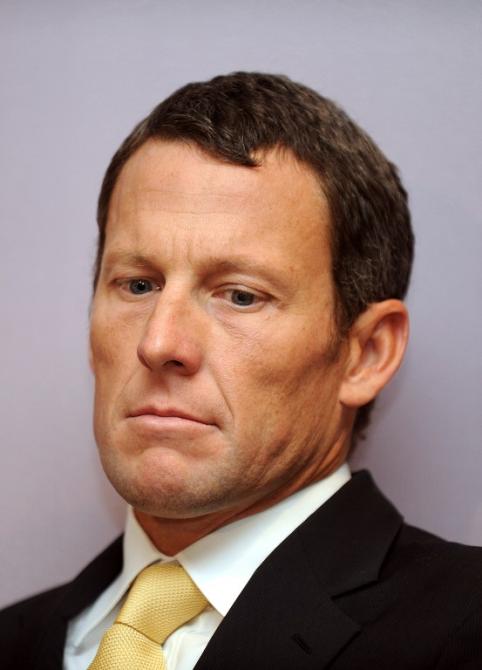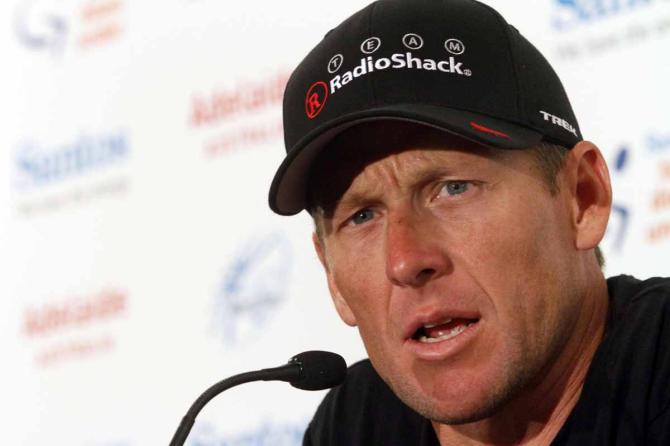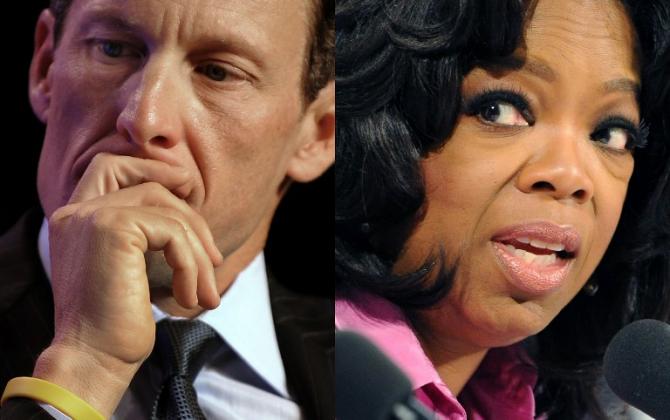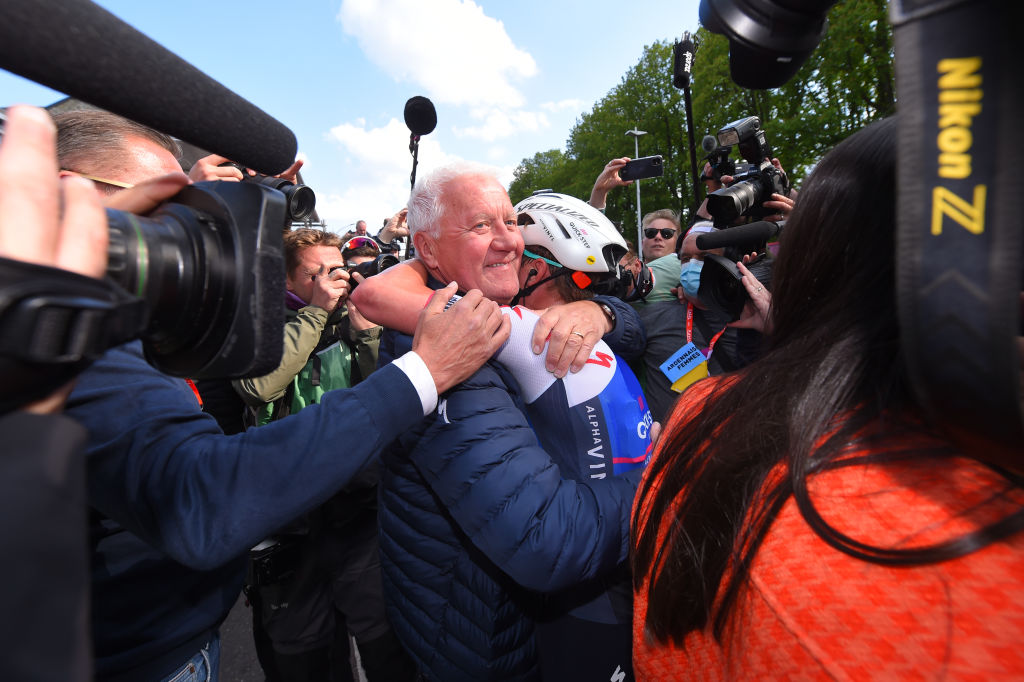Lance Armstrong: Doping was a bad decision in an imperfect time
Banned rider would make the same choices again
The latest race content, interviews, features, reviews and expert buying guides, direct to your inbox!
You are now subscribed
Your newsletter sign-up was successful



In a soon-to-be aired television interview with the BBC, Lance Armstrong says that if he was taken back to 1995 with the same circumstances, he would choose to dope all over again. Although he called his decision to cheat by using banned drugs "a bad decision in an imperfect time", he said that, given the growth in the cycling industry during his now disqualified Tour de France reign, nobody would want him to change that choice.
Armstrong fails to stop US federal government lawsuit going ahead
News shorts: UCI responds to Armstrong's attempt to ride Gran Fondo Hincapie
Armstrong says cycling is still in a mess after his doping confession
Armstrong attorneys clash with Feds over Weisel emails
Report: Armstrong associates agree to settle with US government
"I think all of us - if we go back to 1995 - I think we're all sorry," Armstrong said to the BBC's Dan Roan. "You know what we're sorry for? We're sorry we were put in that place. We would have loved to have competed man to man, [on] bread and water. We're sorry we were put in that place."
Armstrong, fresh from his second appearance at the Cycling Independent Reform Commission (CIRC), said he has done everything he promised to do, in terms of cooperating with the authorities, but would not reveal any details of what he told the CIRC.
"They've asked me to not share specific details of the two meetings. At this point it's safe for me to say, with respect to them. whatever questions they asked, I [answered]. I was totally honest, totally transparent. At this point in my life, I'm not out to protect anybody. I am only out to protect seven people and they all have the last name Armstrong."
Armstrong was banned for life after the US Anti-Doping Agency (USADA) collected hundreds of pages of witness testimony, which showed that not only did he dope, but he was part of an organised scheme to cheat in order to win, and to discredit and ruin anyone who dared threaten him.
Since his television confession with Oprah Winfrey, Armstrong has tried to make amends with the people he wronged, and said that although he might not change his choices in the same circumstances, he regrets acting the way he did.
"For 15 years, I was a complete asshole to a dozen people. I said I'd try to make it right. Anyone who gave me an audience, I was there," he said.
The latest race content, interviews, features, reviews and expert buying guides, direct to your inbox!
Speaking about himself in the third person, Armstrong said he would "want to change the man who did those things. Maybe not the decision but the way he acted. The way he treated other people, the way he just couldn't stop fighting. It's great to fight in training and in the race, but you don't have to get in a press conference or a personal interaction and fight. That's the man that really needed to change and who can never come back."
Armstrong showed little remorse for the part he played in the destructive culture of doping that plagued cycling for more than a decade, explaining that all of the riders in that era were in a bad position.
"If I was racing in 2015, no I wouldn't [dope] again. I don't think you have to. If you take me back to 1995 when it was completely and totally pervasive, I'd probably do it again. I look at everything when I made that decision, when my teammates, and the whole peloton made that decision. It was a bad decision in an imperfect time. but it happened.
"When Lance Armstrong did that, I know what happened because of that. I know what happened in the sport of cycling from 1995 to 2005. I saw its growth, I saw the expansion, I know what happened in the cycling industry. Trek Bicycles went from sales of $100 million to a billion in sales. ... Do all those people want us to make a different decision and take that all away? I don't think anybody says yes."
In the 10-minute preview of the 30-minute documentary called Lance Armstrong: The Road Ahead, Armstrong says his biggest mistake is coming back to the sport in 2009.
"It was the bridge to the past. If I don't come back, the bridge isn't there. The view over the water is too far. The comeback was the bridge. But that was my decision. It was one of the biggest mistakes in my life. I don't have a good reason for why I wanted to come back. No reason at all."
Although it is unlikely his lifetime ban will ever be lifted, Armstrong still sees the punishment as an injustice. He denies being a ringleader in the doping or bullying anyone into it, and said he was not treated the same by the anti-doping authorities as the other riders who doped and were allowed to testify against him to escape significant bans.
"USADA would tell you 'we gave Lance Armstrong the same opportunity as everyone else'. If you go ask George Hincapie, Christan Vande Velde, Dave Zabriskie or Tom Danielson, they're going to tell you how it went. 'You're not getting punished, here's what we want to hear'. I never got that call.
"We're in this situation because the USA, Department of Justice, and FDA compelled people with the threat of prison time to answer questions.
"I don't think anybody else from that generation had the federal agents standing at their door with badge and gun telling them 'you're going to answer our questions'," Armstrong said.
While the FDA-led criminal case of fraud was dropped after the Grand Jury, a False Claims Act case taken up by Floyd Landis has been joined by the federal government and is still underway. Recently several of Armstrong's associates have agreed to settle with the government, and Armstrong still has a lot to lose in the case.
Armstrong said the fallout from his confession has been "heavier than I thought", but said now "it seems like there's some light at the end of the tunnel."
The 30-minute documentary, Lance Armstrong: The Road Ahead, will be broadcast on BBC News at 20:30 GMT on Thursday, 29 January

